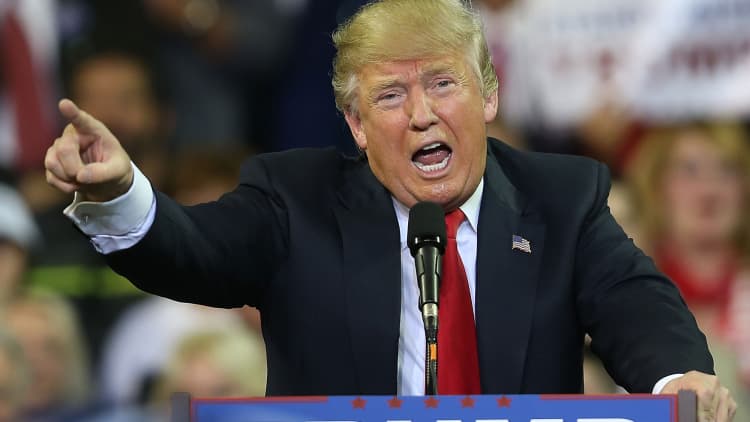
The top global risk of 2017 is very close to home, according to a prominent geopolitical consulting firm.
Eurasia Group named the U.S. abandonment of its global leadership role its "Top Risk for 2017," saying in a Tuesday report that the new U.S. position is not isolationism — outright seclusion from global affairs — but rather one that prioritizes the country's own economic interests above the global promotion of democracy, civil rights or the rule of law.
"Now the 'Pax Americana' is over," Ian Bremmer, the president of consulting firm Eurasia Group and a closely followed political scientist, said on a Tuesday conference call. "It's been coming … for a while. It's now here."
As a result, Bremmer said, China has encountered a "major opportunity" to take on greater global leadership, and Russia sees a "massive opportunity" to expand its power, while traditional U.S. allies now see their connection with the United States as "deeply problematic."
There's no question that China is going to see an independent America as an opportunity to spend and invest in alternative architecture...Ian Bremmerpresident, Eurasia Group
"Pax Americana" is a reference to the "Pax Romana" period of two millennia ago, when the regional order in Europe, the Mediterranean and beyond was controlled by Rome. The United States played a similar role in international affairs for more than two generations after World War II, as it aggressively promoted far-reaching alliances and global free trade under Democratic and Republican presidents alike. But vast segments of Americans were economically hurt by those efforts.
President-elect Donald Trump's proposed policies reflect a different stance. He campaigned to slash trade agreements, renegotiate treaties, pull back from traditional alliances such as NATO, and realign the U.S. trade relationship with China — all with a stated goal of bringing jobs back from overseas. The United States has hemorrhaged millions of manufacturing jobs since 2001, when China joined the World Trade Organization.
The U.S. itself may thrive in the near term, but it could create geopolitical risks. Those include, the report said: near-term chaos from an absent global superpower, broad weakening of international systems such as a global internet, the rise of China, and a Russia that can act with far fewer consequences.
"There's no question that China is going to see an independent America as an opportunity to spend and invest in alternative architecture that fragments" the world into a less unified system, Bremmer said.
That said, analysts do see the need for change to a U.S.-led global framework, and more discriminate pursuit of trade policies.
"These are not radical positions. These are positions other countries have taken towards the U.S.," said George Friedman, chairman of the online publication Geopolitical Futures.
"The U.S. developed its economy from the 1870s to 1900, the world's largest manufacturing economy, all as a protectionist country. ... There's a kind of whacked out thinking that protectionism is going to cause economic dysfunction. What is novel is the idea of free trade," which since 2008 hasn't distributed wealth broadly, Friedman said.


